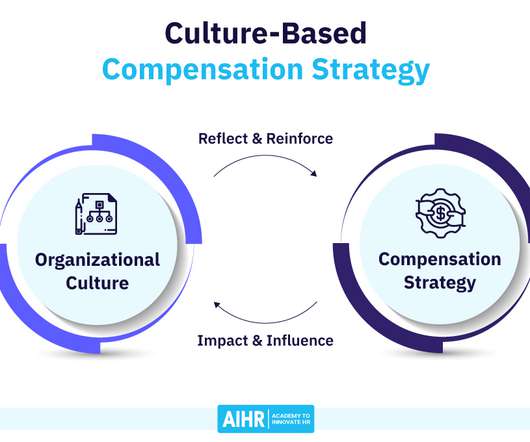Compensation Strategy and Culture: 3 Steps to Create Alignment
Analytics in HR
APRIL 27, 2022
The compensation strategy plays a crucial role in ensuring clarity when making salary and benefits decisions within your organization. With a clear framework for compensation, you will be able to help your organization become more competitive when it comes to attracting and retaining talent. Contents What is a compensation strategy?



















Let's personalize your content